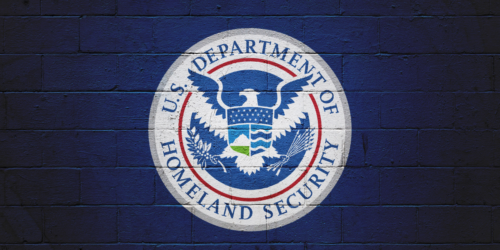When an individual is facing significant debt, they may be concerned about their financial future. Chapter 13 bankruptcy can allow a person who is struggling to keep their assets while creating a repayment plan on what they owe. Chapter 13 can be a great way to get back on track and find financial success once again. If you are facing significant debt, it is important to speak with an experienced bankruptcy attorney that can assess your situation and help you navigate forward through the bankruptcy process. The attorneys at Detzky, Hunter & DeFillippo, LLC have an average of 40 years of experience guiding clients through bankruptcy in New Jersey. If you require a compassionate, knowledgeable legal team, contact Detzky, Hunter & DeFillippo, LLC today.
What is Chapter 13 Bankruptcy
A Chapter 13 Bankruptcy can best be described as a court supervised payment plan which can last for up to 60 months. Most often the single payment you make to the Chapter 13 Trustee is significantly less than the total you owed to your creditors prior to the bankruptcy. Chapter 13 repayment plans are appropriate for those individuals with enough income to propose to pay some or all of their debt within three to five years. It is often used to save clients’ homes from foreclosure, by removing second mortgages when possible and curing first mortgage arrears. Chapter 13 is also appropriate for higher income debtors who make too much money to qualify for a Chapter 7 discharge. Additionally, only a Chapter 13 Bankruptcy offers you the opportunity to repay mortgage arrears in full over 60 months and stop foreclosure or to “Cram Down” or “Strip Off” fully unsecured mortgages or lien.
A Chapter 13 bankruptcy provides you with the power to stop or prevent foreclosures and sheriff’s sales and stop repossessions of automobiles or utility shutoffs while catching up on secured debts.
Chapter 13 is not suitable for everyone. To be successful, you must have regular income and be able to resume your regular monthly payments on your home mortgage and auto loan within one month after the bankruptcy is filed and have the ability to make an additional payment to the Chapter 13 Trustee toward your mortgage arrears.
How can Chapter 13 Bankruptcy help you?
Stop Foreclosure and Sheriff Sales: Is your home currently in foreclosure or have you received notice of an impending sheriff’s sale? Filing a Chapter 13 bankruptcy will stop the foreclosure or sheriff’s sale any time prior to the sale of the house. The Chapter 13 filing will allow you to pay your mortgage arrears through the bankruptcy directly to your mortgage company.
Stop Creditor Harassment: Are creditors calling you at home and at work? Are they contacting your friends and family members? Put an end to your creditor harassment by speaking with one of our New Jersey bankruptcy lawyers. Once you retain our office, you will be able to refer your creditors to us. The creditor harassment will stop immediately. Under some circumstances, this creditor harassment may be in violation of the Fair Debt Collection Practices Act (FDCPA) and you may have cause for further action.
Stop Repossession: Are you behind on your automobile payments? Are you in fear that your car is near repossession? A chapter 13 bankruptcy can help save your car and stop the finance company from moving forward with repossession. Contact one of our New Jersey bankruptcy lawyers today and they can help you consolidate your past due payments as well as the balance on your car loan into the Chapter 13 bankruptcy. You will make one payment to the trustee and the finance company will not be able to move forward with repossession. Under some circumstances, our New Jersey bankruptcy lawyers may even be able to recover your car after repossession and consolidate the balance of your car loan.
Prevent Utility Shutoffs: Worrying about utility shutoffs? Filing a Chapter 13 bankruptcy can stop creditors from shutting off your utility service. Contact one of our New Jersey bankruptcy lawyers today to prevent a disruptive utility shutoff before it’s too late. We have three offices in New Jersey to serve you better.
Eliminate Debt: Debts like credit cards, pay-day loans, medical bills, lawsuits, utility bills, repossessions or foreclosure deficiencies can be eliminated for a fraction of what you owe.
Chapter 13 discharges
Certain debts cannot be discharged in a Chapter 13 bankruptcy. These can include debts for child support, alimony, long-term obligations, such as a home mortgage, student loans, criminal restitution, and outstanding payments for personal injuries or death caused by driving under the influence of drugs or alcohol. Debtors are still obligated to make these payments under a Chapter 13 plan. Please note that debts for fraud, restitution in a civil case, and property obtained by false pretenses are still dischargeable unless a creditor files to have these debts declared non-dischargeable. A Chapter 13 plan allows debtors to discharge more than in a Chapter 7 plan. Unlike a Chapter 7, Chapter 13 does permit the discharge of debts for intentional property damage, debts for non-dischargeable tax obligations, and debt incurred for settlements for proceedings regarding property or divorce.
The Automatic Stay
One of the most beneficial aspects of filing for bankruptcy is the automatic stay. This goes into effect as soon as the individual files and can bring significant actions to a halt. The automatic stay bans all creditors from contacting a debtor in any way and effectively stops all lawsuits, wage garnishment, foreclosures, and repossession. This is effective throughout the entire bankruptcy proceeding and allows a debtor to come up with a repayment plan without the pressure of the creditors.
What is a repayment plan?
In a Chapter 13 bankruptcy, the debtor has the opportunity to come up with a repayment plan for their debt. The petitioner and their attorney will come up with a plan that is suited to the debtor’s needs but also appeases the Bankruptcy Court and creditors. In the plan, a trustee will be appointed to collect money and distribute it accordingly over a period of either 3 or 5 years. If the court wishes to, they can come up with their own plan and then choose between the two. Repayment will start soon after a plan is approved by the court. In some cases, if neither plan is suitable for the court, they may decide that the case should be converted to a Chapter 7 bankruptcy instead.
Contact an experienced NJ bankruptcy attorney
Detzky, Hunter & DeFillippo, LLC has decades of experience guiding clients in Monmouth County, NJ through bankruptcy proceedings. We understand how stressful a difficult financial situation can be. Our firm is here to help you navigate the waters ahead in an effort to achieve financial stability in the future. Contact Detzky, Hunter & DeFillippo, LLC today to schedule a consultation.



